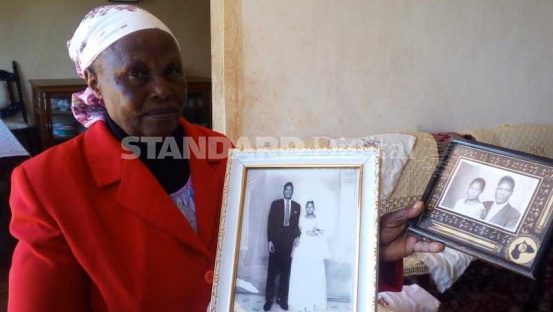×
The Standard e-Paper
Fearless, Trusted News

A bungalow that has seen better days sits on one acre in Kipkabus, Uasin Gishu County.
At first sight, the design of the house in the homestead with an untrimmed lawn looks like one of those favoured by white settlers. Though the compound looks desolate, a warm welcome from a well-groomed elderly woman with an infectious smile shows there is life.